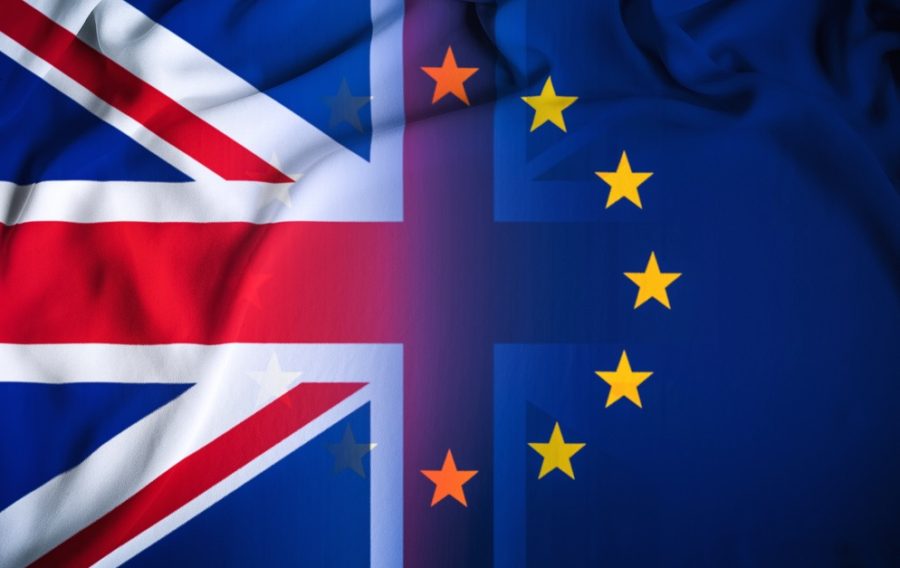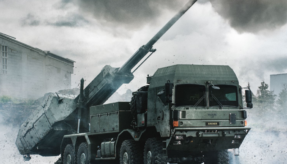
The Defence industry plays a vital role not only in terms of the nation’s security but also in its contribution the UK’s economy.
According to the latest figures from aerospace and defence trade body, ADS, the Defence industry has an annual turnover of £65Bn; enjoys an export market worth £35Bn; supports 900,000 jobs across the country and has created over 10,000 apprenticeships.
So far, the full implications of Britain leaving the European Union have yet to be felt. Long-term contracts being the industry norm and the lack of real clarity on what the trading conditions mean companies are adopting a ‘wait and see’ strategy.
One of the key issues though is how the government will be able to retain access to the highly skilled labour market from the EU. The worry is that should the government be unable to secure an agreement to prevent this scenario, the Defence industry could see the UK lose its competitive edge, leaving it a less attractive place for investment.
However, there has been enough rhetoric to suggest that Britain’s Defensive and Intelligence capabilities could have an even more significant part to play as Britain searches for its place in the world outside of the European Union.
The Armed Forces are likely to feature prominently in the political machinations as the strength and capabilities of the military provide reassurance and underline the UK’s on-going commitment to its allies and playing an active role in providing security around the globe.
Prime Minister, Theresa May pledged that the Royal Navy would play a key role in a post-Brexit world. She said: “As Britain steps up to forge a new, positive, confident role for our country on the global stage, the Royal Navy will play an important part in our vision – pursuing our objectives of security on land and on sea and helping to ensure the free flow of international trade.”
It is clear that major investment must be made in the Royal Navy to fulfil this pivotal role envisaged by Mrs May and those Defence firms associated with the maritime sector will buoyed by the numerous calls to increase investment in the Royal Navy.
Writing for the Financial Times, Conservative MP Tom Tugendhat urged Britain to prioritise increasing her naval presence.
He described the Royal Navy as “too small to effect change” and said that the fleet provided much more than just weapons platforms.
Mr Tugendhat: “They enable intelligence and diplomacy, and demonstrate a willingness to engage where others would not. They build alliances and relationships that profit our trade as well as defence.”
The Conservative MP called for the number of Type 26 frigates on order for the Royal Navy to double from eight to 16 to signal the government’s support to “the skills of our engineers and technicians, and give Britain’s shipyards a key role in the government’s industrial strategy”.
The benefits of such a strategy would include the creation of a strong industrial platform and catalyst for innovation as a budget that sought to maintain an industrial base would prevent the loss of skills to international manufacturers.
NATO
As Britain gears up to activate Article 50 to trigger the divorce proceedings from the European Union, her leading role within NATO has been the subject of some speculation.
Reports suggest that France is circling Britain’s senior position within the alliance; with claims her role could be under threat following Brexit.
Since 1951, the role of Deputy Supreme Allied Commander, the number two military position within NATO, has been held a Briton.
With Britain no longer in a position to directly influence the European Union, the significance of the role may require it to switch to a member of EU.
Britain’s unofficial role of being a political bridge between the United States and its European allies thanks to the enduring ‘Special Relationship’ and being a key member of the European Union will also be questioned.
It remains to be seen if Britain’s pivotal role will change following the finalising of Brexit as the United States will seek to deal directly with the likes of Germany and France.
The Royal United Services Institute (RUSI) has published a report examining how Brexit could affect the UK’s role. Although the research suggests Britain will continue to exert significant influence on the matters regarding European Defence, it stated that ‘it will become harder for the UK to translate this commitment into political influence; it will have to work hard to ensure that its policy inputs are not an afterthought to the results of US/EU dialogue.’
Perhaps the biggest threat to NATO comes in shape of Donald Trump’s presidency. He said Brexit was a “great thing” and claimed that others may follow Britain’s lead and look to exit the European Union.
He described the Alliance as “obsolete, because it was designed many, many years ago” and had failed to deal with the threat of terror.
When on the campaign trail, Mr Trump voiced his concerns that other NATO member states were not meeting their financial obligations.
Only five of NATO’s 28 nations spend more than the alliance’s recommended level of 2% of GDP on defence, while the US contributes almost 70% of NATO’s combined annual defence spending.
President Trump commented: “You can’t forget the bills. They have an obligation to make payments. Many NATO nations are not making payments, are not making what they’re supposed to make. That’s a big thing. You can’t say forget that.”
However, the President’s views were not shared by his new appointed Defence Secretary, James Mattis, who said at his senate confirmation hearing: “If we did not have NATO today, we would have to create it.”
No doubt, many will be hoping that General Mattis will bring Mr Trump around to his way of thinking.
Impact on European Defence
The impact of the result of EU referendum in June has already been seen in the European Union’s decision to raise its military research budget for the first time in six years after UK dropped its opposition to the plan.
In November, an increase to the 2017 funding of the European Defence Agency by 1.6%, in line with inflation was agreed, rising from €30.5M to €31M.
EU Foreign Affairs Minister Federica described the decision as “a clear demonstration of all EU member states, including the United Kingdom, to increase the budget of the agency to reflect the work to be done.”
The European Parliament also voted in favour of plans that would see the creation of a defence union, which would see a more structured defensive cooperation and a new EU military operational headquarters.
While the vote itself was not legally binding, it provides a clear indication of a willingness and acceptance amongst EU members to develop its defensive capabilities.
Britain has maintained its position that it wants to play a leading a role on matters of European defence.
In her recent Brexit speech, Prime Minister Theresa May confirmed the government’s intentions to maintain a close collaboration her EU allies.
She said: “We will continue to work closely with our European allies in foreign and defence policy even as we leave the EU itself.”
This need for cooperation between Britain and Europe on Defence looks set to play a key role in the government’s Brexit negotiations with Mrs May suggesting that Britain’s role as nuclear power and leading intelligence capabilities could provide some degree of leverage in maintaining favourable ties.
The Prime Minister said: “Cooperation between Britain and the EU is needed not just when it comes to trade but when it comes to our security too.
“Britain and France are Europe’s only two nuclear powers. We are the only two European countries with permanent seats on the United Nations Security Council. Britain’s armed forces are a crucial part of Europe’s collective defence.
“And our intelligence capabilities – unique in Europe – have already saved countless lives in very many terrorist plots that have been thwarted in countries across our continent. After Brexit, Britain wants to be a good friend and neighbour in every way, and that includes defending the safety and security of all of our citizens.”
The initial industry reaction to the Prime Minister’s speech welcomed the Prime Minister’s efforts to add clarity to Brexit and offered its support to support the government during the negotiation process.
Paul Everitt, Chief Executive of aerospace and defence trade body, ADS, said: “The Prime Minister has provided important clarity ahead of the triggering of Article 50 and the start of formal Brexit negotiations. ADS will continue to support government as it seeks to secure an ambitious agreement with our EU partners that delivers barrier-free access to trade, skills and simplified regulatory regimes.
“Securing the best deal for the UK and our EU partners will take time and it is essential that there are transitional arrangements in place to avoid disrupting closely integrated supply chains and damaging the UK’s global competitiveness.”
Of course, what the government hopes to achieve in its negotiations will not necessarily be what it ends up with. Once Article 50 is triggered before the end of March and the process gets real, we can expect to learn much more. At the moment, it would appear that the government is placing its Defence capabilities central to its exit strategy. Those in the industry will be hoping that this translates into stability and more investment to keeping the UK at the forefront of the sector.
If you would like to join our community and read more articles like this then please click here







